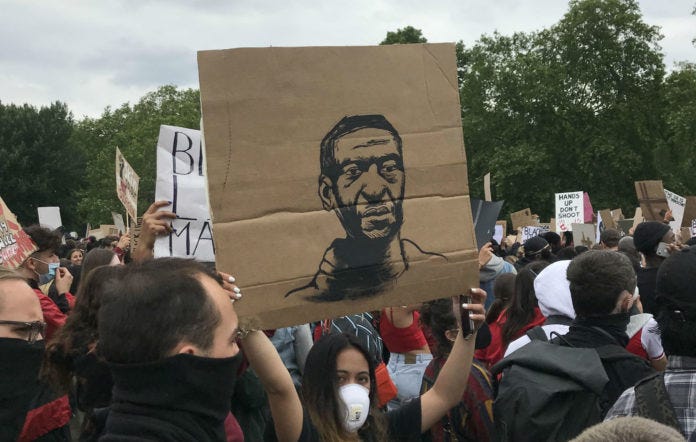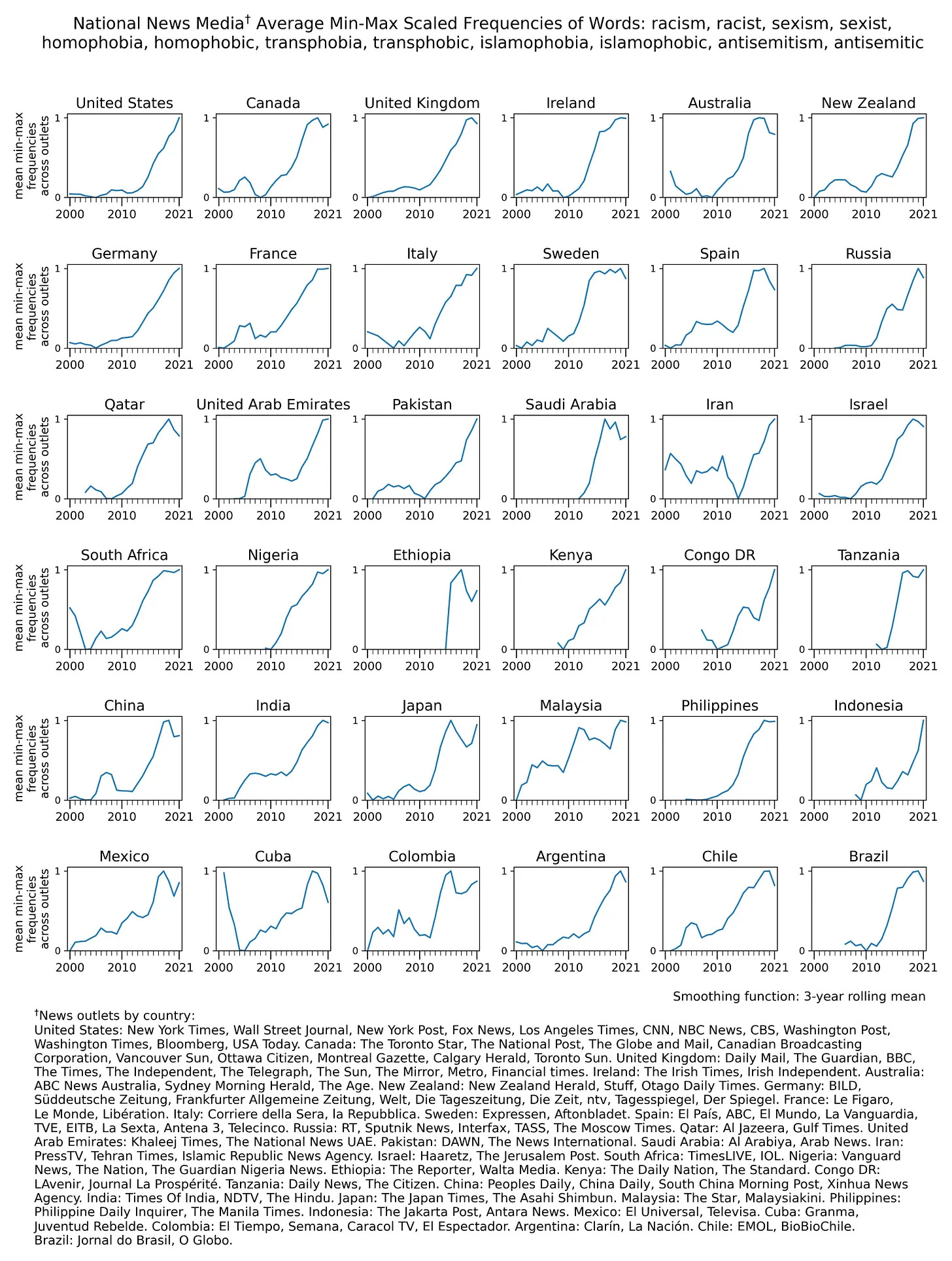Why Did No One Say Anything?
Have you noticed that things got weird a few years ago? And that the world makes less and less sense with every year?
Why did protesters in England, where the police are not armed, shout “Hands up, don’t shoot” at cops who don’t have guns?
Isn’t it strange that within the blink of an eye politicians suddenly became unable to explain what a woman is?
How is it that societies whose stated goal was a world in which “all men are created equal” became obsessed with dividing themselves along racial lines?
Why do multinational corporations stick rainbow flags everywhere? Except in Saudi Arabia, obviously.
Do you remember when everyone lost their shit because Donald Trump said:
“We simply cannot allow people to pour into the United States undetected, undocumented, unchecked, and circumventing the line of people who are waiting patiently, diligently, and lawfully to become immigrants in this country.”
You probably don’t. Because it wasn’t President Trump that said it. It was President Obama. And no one lost their shit because up until 3 minutes ago everyone, left and right, understood that countries need borders.
And yet, here we are, in 2023, where the definition of a woman is now controversial, people breaking into our country illegally is conflated with normal, lawful immigration and the weird obsession with race just won’t go away.
And what’s strange about it is that if you talk to most people, no one wanted this.
So how did it happen? And why did no one say anything?
Around 2013/2014, social media platforms like Twitter and Facebook began to take off. Virtually overnight the mainstream media began to publish article after article about racism, sexism, homophobia, transphobia etc. And this didn’t just happen in Britain and America. It happened in places as far and wide as Nigeria, Japan, Cuba, the Philippines, Qatar and Brazil.
The investor Charlie Munger, who is Warren Buffet’s right hand man, said “Show me the incentives and I’ll show you the outcome”. What no one realised at the time is that social media rewards certain types of communication. And whatever you reward, you get more of. Social media rewards complaining, outrage and victimhood so it produces complaints, outrage porn and victims.
But why did no one say anything? Well, first of all, some people tried to.
J.K. Rowling said something. And went from celebrated author to demonised hate figure.
Bari Weiss, a journalist at the New York Times, said something. She’s no longer at the New York Times.
Clinical psychologist Jordan Peterson said something. And now they’re trying to take his licence away.
And despite their efforts, little changed as institution after institution succumbed to the craziness.
That in itself is weird. I often found myself naively thinking that all it takes is one more brave, principled and articulate individual to stand up and say something and it would all be over.
Instead, one after another, these people lost jobs, opportunities and careers. It’s going on right now with Roisin Murphy, who dared to suggest that puberty blockers are a bad idea. The BBC responded by removing her work from their radio line-up.
This is despite the fact that the Tavistock Clinic, which administered these puberty blockers, was shut down after the Cass Review raised serious concerns about giving these drugs to children. And despite the fact that most people in both Britain and America do not support puberty blockers, gender reassignment surgery, the inclusion of trans women in women’s sports and so on.
In other words: prominent, respected and successful people who speak the truth are punished for saying what most of their fellow citizens agree with. Does that make any sense to you? To anyone?
So what’s going on?




